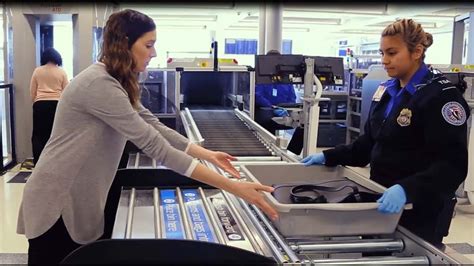
A traveler recounts falling victim to a common tourist scam in Greece involving inflated seafood prices at a seaside restaurant, highlighting the importance of vigilance and price confirmation to avoid overpayment.
A recent trip to Greece turned sour for one traveler who fell prey to a classic tourist trap, a scenario all too familiar to seasoned globetrotters. The incident, involving an exorbitant bill for a seafood meal at a restaurant near the sea, serves as a cautionary tale for anyone planning a visit to the popular Mediterranean destination.
The traveler, whose account was recently published, details how the allure of a picturesque seaside restaurant quickly turned into a financial setback. “I fell for a classic tourist scam in Greece—and I didn’t realize until it was too late,” the traveler laments, emphasizing the unexpected nature of the experience. The specific location of the incident was a restaurant strategically located to attract tourists, promising an authentic Greek culinary experience with fresh seafood.
The initial charm of the restaurant masked the potential for exploitation. Lured in by the ambiance and the promise of fresh catches, the traveler and their companion ordered a selection of seafood dishes. The menu, as it turned out, was the first red flag, lacking clearly stated prices for certain items. This ambiguity is a common tactic employed by unscrupulous establishments targeting tourists.
“The menu didn’t have any prices listed for the ‘fresh fish of the day,’” the traveler notes, a seemingly innocuous detail that would later contribute to the inflated bill. Assuming a reasonable price point, based on previous dining experiences in similar locations, the order was placed without further inquiry. This assumption proved to be a costly mistake.
When the bill arrived, the total amount was shockingly high, significantly exceeding the expected cost based on the items ordered. The fresh fish, which lacked a listed price, was the primary culprit, accounting for a substantial portion of the unexpectedly large sum. The traveler described the feeling of helplessness upon realizing they had been scammed: “We were presented with a bill that was nearly double what we anticipated.”
Confronting the restaurant staff proved futile. The staff defended the high prices, claiming they were justified by the quality and freshness of the seafood. Attempts to negotiate or dispute the bill were met with resistance, leaving the traveler with little recourse but to pay the inflated amount. This situation underscores a common power dynamic in tourist scams, where the establishment holds the upper hand, knowing that tourists are often reluctant to escalate the situation due to language barriers, time constraints, or a desire to avoid conflict.
The traveler’s experience highlights several key strategies that tourists can employ to avoid similar scams. The most crucial preventative measure is to always confirm prices before ordering, especially for items without listed prices on the menu. Asking for clarification, even if it seems overly cautious, can prevent unpleasant surprises when the bill arrives.
“Always ask for prices upfront, especially for items like ‘fresh catch of the day’ that might not have prices listed,” the traveler advises, emphasizing the importance of proactive inquiry. Another effective strategy is to research restaurants in advance, reading reviews and checking for any red flags related to pricing or billing practices. Online platforms and travel forums often contain valuable insights from other travelers who have experienced similar situations.
Furthermore, paying attention to the overall ambiance and behavior of the restaurant staff can provide clues about its legitimacy. Establishments that are overly aggressive in attracting customers or that seem evasive when asked about pricing should be approached with caution. Opting for restaurants frequented by locals, rather than those catering primarily to tourists, can also reduce the risk of encountering inflated prices.
In the aftermath of the experience, the traveler shared their story to warn others and raise awareness about the prevalence of tourist scams in Greece. The account serves as a reminder that even in popular and seemingly reputable tourist destinations, vigilance and informed decision-making are essential to avoid being taken advantage of. The incident underscores the importance of responsible tourism, where travelers are not only mindful of their own experiences but also contribute to ethical and sustainable practices within the local economy.
The incident also raises questions about the role of local authorities in regulating tourist establishments and protecting visitors from scams. While Greece relies heavily on tourism as a source of revenue, the prevalence of scams can damage the country’s reputation and deter future visitors. Implementing stricter regulations, increasing transparency in pricing, and providing accessible channels for tourists to report fraudulent practices could help mitigate the problem and ensure a more positive experience for all visitors.
The traveler’s unfortunate encounter is not an isolated incident. Tourist scams are a persistent problem in many popular destinations around the world, often targeting unsuspecting visitors with inflated prices, hidden fees, or misleading information. These scams can range from minor inconveniences to significant financial losses, leaving tourists feeling frustrated and disillusioned. By sharing their stories and providing practical advice, travelers like the one in this account play a crucial role in educating others and promoting safer and more responsible tourism practices.
This incident sheds light on the broader issue of ethical tourism and the responsibility of both tourists and local businesses to uphold fair and transparent practices. While tourists have a responsibility to be vigilant and informed, local businesses have an equal responsibility to treat visitors with honesty and respect. By fostering a culture of ethical tourism, destinations can create a more welcoming and sustainable environment for all.
The experience also highlights the psychological factors that can make tourists vulnerable to scams. The desire to have a memorable and enjoyable vacation can sometimes override caution and critical thinking. Tourists may be more likely to trust local establishments, especially in unfamiliar environments, making them susceptible to deceptive practices. Understanding these psychological vulnerabilities is essential for developing effective strategies to prevent tourist scams.
In conclusion, the traveler’s account serves as a valuable lesson for anyone planning a trip to Greece or any other popular tourist destination. By remaining vigilant, confirming prices upfront, researching establishments in advance, and paying attention to red flags, tourists can significantly reduce their risk of falling victim to scams. Ultimately, responsible tourism requires a collaborative effort from both tourists and local businesses to ensure a fair and transparent experience for all. The experience serves as a stark reminder that even in the most idyllic settings, travelers must remain alert and informed to protect themselves from exploitation. The best defense against tourist scams is knowledge, preparation, and a healthy dose of skepticism.
The Impact of Social Media and Online Reviews:
In today’s digital age, social media and online review platforms play a significant role in shaping tourists’ experiences and influencing their decisions. Websites like TripAdvisor, Yelp, and Google Reviews provide valuable insights into the quality and reputation of restaurants, hotels, and other tourist establishments. Travelers can use these platforms to research businesses in advance, read reviews from other visitors, and identify potential red flags.
However, it’s important to approach online reviews with a critical eye. While many reviews are genuine and informative, some may be biased, fake, or manipulated by businesses seeking to improve their online reputation. Therefore, it’s essential to consider a variety of sources and look for patterns or trends in the reviews. Pay attention to both positive and negative feedback, and be wary of reviews that seem overly enthusiastic or generic.
Social media can also be a powerful tool for sharing experiences and warning others about potential scams. Travelers can use platforms like Facebook, Instagram, and Twitter to post photos, videos, and stories about their encounters, both positive and negative. This can help raise awareness about tourist scams and provide valuable information for other visitors.
However, social media can also be a source of misinformation and exaggeration. It’s important to verify information before sharing it and to avoid spreading rumors or unsubstantiated claims. Responsible social media use can contribute to a more informed and transparent tourism environment.
Legal Recourse and Consumer Protection:
Tourists who fall victim to scams may have limited legal recourse, especially in foreign countries. However, there are some steps that can be taken to seek redress or report fraudulent practices.
First, it’s important to gather as much evidence as possible, including receipts, photos, and any communication with the establishment involved. This evidence can be used to support a claim or complaint.
Next, consider reporting the incident to the local police or tourist authorities. While they may not be able to resolve the issue immediately, filing a report can help document the scam and potentially lead to further investigation.
You can also file a complaint with consumer protection agencies in your home country or in the country where the scam occurred. These agencies may be able to mediate the dispute or provide advice on how to pursue legal action.
In some cases, it may be possible to seek compensation through your travel insurance or credit card company. Check the terms and conditions of your policies to see if they cover losses resulting from fraud or scams.
However, it’s important to be realistic about the chances of recovering your money or obtaining compensation. Legal proceedings in foreign countries can be complex and time-consuming, and the cost of pursuing legal action may outweigh the potential benefits.
Prevention is always the best approach. By taking proactive steps to avoid scams, tourists can minimize their risk of financial loss and ensure a more positive travel experience.
The Role of Cultural Sensitivity and Understanding:
While vigilance and skepticism are important, it’s also essential to approach travel with an open mind and a willingness to learn about different cultures. Cultural misunderstandings can sometimes lead to misinterpretations and perceived scams.
For example, bargaining is a common practice in many countries, and tourists may be expected to negotiate prices for goods and services. What may seem like a scam to a Western tourist could be a normal business practice in another culture.
Similarly, tipping customs vary widely around the world. In some countries, tipping is expected and included in the bill, while in others it’s optional or even considered offensive.
Before traveling to a new country, it’s helpful to research local customs and etiquette. This can help you avoid misunderstandings and navigate unfamiliar situations with greater confidence.
However, cultural sensitivity should not be used as an excuse for unethical or fraudulent behavior. If you suspect that you are being scammed, it’s important to assert your rights and seek assistance from local authorities or consumer protection agencies.
Long-Term Solutions and Sustainable Tourism:
Addressing the problem of tourist scams requires a long-term, multi-faceted approach that involves collaboration between governments, businesses, and tourists.
Governments can play a key role by implementing stricter regulations, increasing transparency in pricing, and providing accessible channels for tourists to report fraudulent practices. They can also invest in education and awareness campaigns to inform tourists about potential scams and how to avoid them.
Businesses have a responsibility to operate ethically and treat tourists with honesty and respect. This includes providing clear and accurate pricing information, avoiding deceptive practices, and addressing customer complaints promptly and fairly.
Tourists can contribute to sustainable tourism by supporting businesses that prioritize ethical practices and environmental responsibility. They can also choose to travel in a way that minimizes their impact on local communities and cultures.
By working together, governments, businesses, and tourists can create a more sustainable and equitable tourism environment that benefits everyone.
Expanding on Specific Scam Tactics
Beyond the general advice, understanding the specific tactics used in tourist scams can significantly increase your awareness and ability to avoid them. These tactics often exploit tourists’ unfamiliarity with the local environment, language barriers, and desire for authentic experiences. Here are some more detailed examples:
-
The “Free” Gift Scam: This involves someone approaching you offering a “free” gift, such as a bracelet or flower. Once you accept the gift, they demand payment, often becoming aggressive if you refuse. The price is usually inflated far beyond the actual value of the item.
-
The Taxi Meter Scam: Unscrupulous taxi drivers may tamper with the meter to run faster, take longer routes intentionally, or claim the meter is “broken” and demand a higher, non-negotiable fare. Always ensure the meter is running and know the general route to your destination. Using ride-sharing apps with pre-determined fares can also help.
-
The Fake Petition/Charity Scam: Individuals approach you with a clipboard, claiming to be collecting signatures or donations for a charity. They may use emotional stories or fabricated organizations to pressure you into donating. The money is rarely, if ever, used for the stated cause.
-
The “Helpful” Stranger Scam: A seemingly friendly local offers unsolicited help with directions, luggage, or finding a specific location. They then lead you to a shop, restaurant, or other establishment where they receive a commission for bringing in customers, and you may be charged inflated prices.
-
The Overly Enthusiastic Photographer Scam: Someone offers to take your photo at a popular tourist spot, often using your own camera or phone. After taking the photo, they demand a large sum of money for their “service.”
-
The Knock-Off Goods Scam: Vendors sell counterfeit designer goods, claiming they are authentic. The quality is usually poor, and you’re paying a high price for a fake.
-
The Broken Item Scam: While you are browsing in a shop, the vendor intentionally “breaks” an item and demands that you pay for the damage.
-
The Shortchanging Scam: When paying for goods or services with cash, the vendor deliberately gives you incorrect change, hoping you won’t notice. Always count your change carefully.
-
The “Closed” Attraction Scam: You are approached by someone who tells you that a popular attraction is closed for the day, but they know “another” way to get in, often involving a guided tour or special ticket that costs significantly more than the official entrance fee.
Strategies for Staying Safe and Avoiding Scams
Beyond being aware of these tactics, implementing these strategies can further protect you:
-
Research Common Scams: Before traveling to a destination, research the common scams that target tourists in that area. Knowing what to expect will make you less vulnerable.
-
Trust Your Gut: If something feels off or too good to be true, it probably is. Don’t be afraid to politely decline unsolicited offers or services.
-
Dress Down: Avoid wearing expensive jewelry or clothing that might make you a target for thieves.
-
Be Aware of Your Surroundings: Pay attention to your surroundings and be wary of crowded areas where pickpockets operate.
-
Keep Valuables Secure: Use a money belt or secure bag to keep your valuables safe. Avoid carrying large amounts of cash.
-
Learn Basic Phrases: Learning a few basic phrases in the local language can help you communicate and avoid misunderstandings.
-
Stay Connected: Keep your phone charged and have access to the internet so you can look up information or contact help if needed.
-
Share Your Itinerary: Let friends or family know your travel plans and check in with them regularly.
-
Make Copies of Important Documents: Keep copies of your passport, driver’s license, and other important documents in a safe place, separate from the originals.
-
Don’t Be Afraid to Say No: Don’t feel obligated to accept offers or services that you don’t want. A polite but firm “no” is often the best response.
-
Photograph EVERYTHING: If you suspect something is not right, take a discreet photo of the situation if safe to do so. This could be a photo of the menu board, the supposed damage to the product or any other anomaly that would support a future claim.
By staying informed, being vigilant, and trusting your instincts, you can significantly reduce your risk of falling victim to tourist scams and enjoy a safer and more rewarding travel experience.
Frequently Asked Questions (FAQ)
Q1: What is the most common tourist scam in Greece?
A: According to reports, one of the most common scams involves restaurants, particularly those near the sea, charging exorbitant prices for seafood, especially for items like “fresh catch of the day” that lack clearly listed prices on the menu.
Q2: How can I avoid being scammed at a restaurant in Greece?
A: To avoid restaurant scams, always confirm prices upfront, especially for items without listed prices. Research restaurants in advance, read reviews, and be cautious of establishments that are overly aggressive in attracting customers. Opt for restaurants frequented by locals rather than those catering primarily to tourists.
Q3: What should I do if I think I’ve been scammed in Greece?
A: If you suspect you’ve been scammed, gather evidence like receipts and photos. Report the incident to the local police or tourist authorities. You can also file a complaint with consumer protection agencies in your home country or the country where the scam occurred. Contact your travel insurance or credit card company to see if they offer any coverage.
Q4: Are there any specific regions in Greece where tourist scams are more prevalent?
A: Tourist scams can occur in any popular tourist destination, but they are often more prevalent in areas with high tourist traffic, such as islands, coastal areas, and popular historical sites. Being vigilant in these areas is particularly important.
Q5: Does the Greek government do anything to protect tourists from scams?
A: While Greece relies heavily on tourism, the government’s efforts to protect tourists from scams can vary. Implementing stricter regulations, increasing transparency in pricing, and providing accessible channels for tourists to report fraudulent practices could help mitigate the problem. Tourists should also do their part by reporting incidents and spreading awareness.









